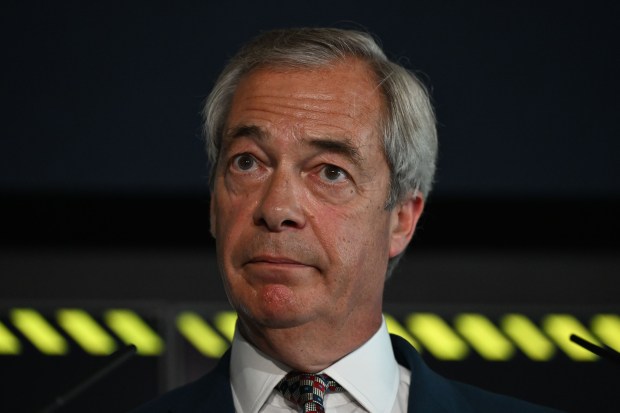Politics
Farage’s House of Lords Demand Sparks Political Controversy

A political controversy has erupted following a request from Nigel Farage, leader of the Reform UK party, for representation in the House of Lords. The Labour Party rejected his demand, which highlighted significant shifts in the British political landscape. Farage argued that the current situation calls for Reform UK to have a voice in the upper chamber, despite his party having only four Members of Parliament (MPs).
In a letter addressed to Sir Keir Starmer, the Prime Minister who has ultimate authority over House of Lords appointments, Farage contended that the “seismic shifts” in voter sentiment warrant consideration for Reform UK. He pointed out that while the Liberal Democrats have 76 peers, they received 600,000 fewer votes than Reform UK in the last general election, which he believes exemplifies a democratic imbalance.
Farage’s previous calls for the transformation of the House of Lords into an elected chamber, similar to the United States Senate, further complicate his current appeal for seats. He stated, “Whilst Reform UK believes in a reformed House of Lords, the time has come to address the democratic disparity there.”
Defence Secretary John Healey responded to Farage’s request during an interview on LBC, criticizing the inconsistency in Farage’s position. He remarked, “This is the same Nigel Farage that called for the abolition of the House of Lords and now wants to fill it with his cronies. I’m not sure Parliament is going to benefit from more Putin apologists like Farage.” Healey’s comments reflect a broader skepticism about Farage’s motives and the implications of his demand.
The Prime Minister traditionally has the final say on appointments to the House of Lords, but there is a historical understanding that opposition parties are allowed some representation. For instance, when Starmer nominated 30 Labour peers in December 2023, he also elevated six Conservative members to the upper chamber.
In a counter-argument, Richard Tice, deputy of Reform UK, accused Labour of manipulating the system to marginalize new parties. He described the situation as a “democratic outrage” and criticized the party for what he termed an “old-fashioned establishment stitch-up.” Tice emphasized that Labour is effectively “rigging the system against the new party, changing the rules of the game.”
The ongoing debate over the House of Lords raises questions about the future of the chamber itself. Starmer has previously expressed intentions to abolish the Lords, although no action is anticipated before the next election. The tension between traditional party structures and emerging political movements like Reform UK will likely continue to be a focal point in British politics.
As this controversy unfolds, it remains to be seen how it will influence public opinion and subsequent political strategies leading up to upcoming elections.
-

 Entertainment2 months ago
Entertainment2 months agoIconic 90s TV Show House Hits Market for £1.1 Million
-

 Lifestyle4 months ago
Lifestyle4 months agoMilk Bank Urges Mothers to Donate for Premature Babies’ Health
-

 Sports3 months ago
Sports3 months agoAlessia Russo Signs Long-Term Deal with Arsenal Ahead of WSL Season
-

 Lifestyle4 months ago
Lifestyle4 months agoShoppers Flock to Discounted Neck Pillow on Amazon for Travel Comfort
-

 Politics4 months ago
Politics4 months agoMuseums Body Critiques EHRC Proposals on Gender Facilities
-

 Business4 months ago
Business4 months agoTrump Visits Europe: Business, Politics, or Leisure?
-

 Lifestyle4 months ago
Lifestyle4 months agoJapanese Teen Sorato Shimizu Breaks U18 100m Record in 10 Seconds
-

 Politics4 months ago
Politics4 months agoCouple Shares Inspiring Love Story Defying Height Stereotypes
-

 World4 months ago
World4 months agoAnglian Water Raises Concerns Over Proposed AI Data Centre
-

 Sports4 months ago
Sports4 months agoBournemouth Dominates Everton with 3-0 Victory in Premier League Summer Series
-

 World4 months ago
World4 months agoWreckage of Missing Russian Passenger Plane Discovered in Flames
-

 Lifestyle4 months ago
Lifestyle4 months agoShoppers Rave About Roman’s £42 Midi Dress, Calling It ‘Elegant’









